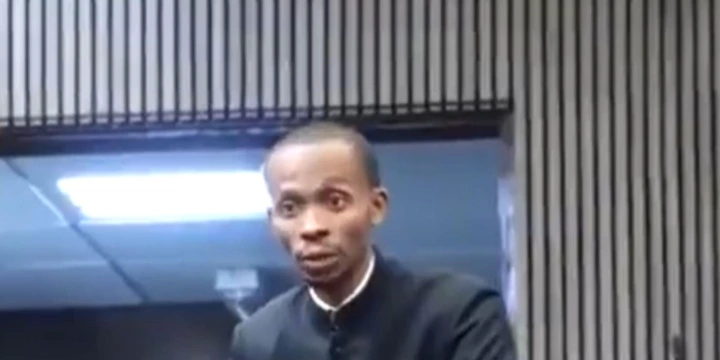Speaking during plenary, El-Rufai questioned why a recently convicted Boko Haram member, identified as Hussaini Ismail, received a 20-year sentence from a High Court, while IPOB leader Mazi Nnamdi Kanu was handed a life sentence just a week earlier.
Hon. Muhammad Bello El-Rufai, member representing Kaduna North Federal Constituency, decried what he described as unequal justice in the handling of high-profile security cases in Nigeria.
Speaking during plenary, El-Rufai questioned why a recently convicted Boko Haram member, identified as Hussaini Ismail, received a 20-year sentence from a High Court, while IPOB leader Mazi Nnamdi Kanu was handed a life sentence just a week earlier.
“I don’t understand why one terrorist gets 20 years and the other gets life. There’s this idea that justice is served differently, and it affects the problem,” El-Rufai said, echoing concerns earlier raised by another lawmaker.
The Kaduna lawmaker, who apologised for arriving late due to ill health, warned that inconsistencies in justice delivery risk worsening Nigeria’s fragile security climate.
He argued that disparity in punishment feeds public perception that the judicial system treats groups and regions differently, an issue he said must be urgently addressed if the government hopes to win public trust in its fight against insecurity.
El-Rufai backed President Tinubu’s newly announced security plan but insisted that execution, not mere pronouncements, is Nigeria’s real challenge.
“Our problem is not announcing plans; it’s executing them with clear timelines. This parliament must insist on those timelines,” he stressed.
He also called for an immediate increase in the salaries and welfare of police officers and soldiers, describing Nigeria’s policing ratio as dangerously inadequate.
“At present, one police officer is managing 600 Nigerians. The UN recommends a ratio of 1 to 400. We must find the money to fix this,” he said.
Reiterating his long-standing advocacy for decentralised policing, El-Rufai argued that Abuja cannot effectively coordinate security operations in far-flung communities.
“We cannot be sitting in Abuja and expecting operations to be efficient in Benue. We have to go back to communal policing. Traditional leaders must be involved,” he said, urging the National Assembly to accelerate constitutional reforms on state police.
He dismissed fears that state governors would abuse the system, saying: “They already have all the power.”
In a candid admission, the lawmaker said northern Nigeria has failed its youth, leaving many vulnerable to crime and radicalisation.
“We are not sending our children to school. Young people have no employment and no skills because we have neglected them for years,” he lamented.
He pointed to trending videos of bandits flaunting cash on TikTok, warning that such displays are “exciting” to idle youths seeking quick money.
El-Rufai concluded with a blunt indictment of Nigeria’s political class.
“We can talk about FDI and investments, but we are failing in our primary duty, to protect the people we serve,” he said.
He urged the House to ensure transparent, digitised recruitment into security agencies, prioritising capable young Nigerians motivated by service rather than desperation.
“We rely on you, Mr. Speaker, and the constitutional review committee. Roll out state police in this country,” he said.
WATCH: El-Rufai’s Son Condemns Disparities In Terrorism Sentencing, Questions Why Boko Haram Convict Got 20 Years While Nnamdi Kanu Faces Life pic.twitter.com/YRDgAoBzYm
— Sahara Reporters (@SaharaReporters) November 28, 2025

